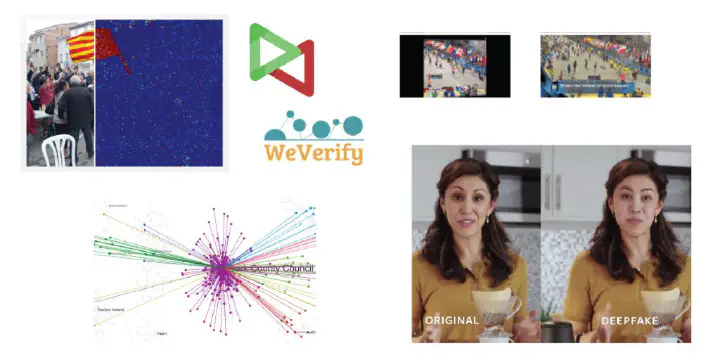MeVer tools for Image and Video Verification within WeVerify

WeVerify is an EU granted project that aims to address the complex content verification challenges through a participatory verification approach, open-source algorithms, low-overhead human-in-the-loop machine learning and intuitive visualizations. The MeVer team leads the ‘Cross-modal Disinformation Detection and Content Verification’ work package and in collaboration with the University of Sheffield (USFD) have developed tools that will bring together features from text, images and videos to tackle the challenge of cross-modal disinformation detection and content verification.
Having reached the end of the second year of the project and in view of the second year’s review we recorded demos of tools we built in the project to fulfil the needs of the WeVerify project.
A brief overview and a demo on how to use and the features of each tool is provided below. For the tools that are password-protected, in case of interest, requests for trial should be made by email at verifymedia@iti.gr stating the purpose of use.
Deepfake detector
The deepfake detection algorithm processes media items (images or videos) and returns the probability that this media contains deepfake manipulated faces. In video cases, the video is segmented in shots and probabilities are extracted for every frame of the shots. The overall probability (video-level) is calculated by the shot with the higher deepfake probability.
VIDEO
Network Visualization
This is a web application that offers a network-based visualization of online social media conversations aiming to help users gain insights about how information spreads in the network and how communities are formed as a result of the groups frequently communicating with each other.
VIDEO
Image Verification Assistant
The tool consists of a set of image forensics algorithms that try to find traces of forgeries in the query images. A metadata section is provided presenting all available metadata. A fusion method is already in place in order to combine the diverse outputs from the forensics algorithms of the tool.
VIDEO
Context Aggregation and Analysis
The tool aims to facilitate the verification of user-generated images and videos from YouTube, Facebook and Twitter. It performs an analysis on the context surrounding the media item. It collects all publicly available metadata, analyzes them and creates a verification report.
VIDEO
Near Duplicate detection
This tool provides reverse video search against a large collection of videos. The large collection of videos, called index, consists of the FIVR-200K dataset and any other videos that are submitted by the users.
The content of this post is licensed under a Creative Commons Attribution-NonCommercial-ShareAlike 4.0 International License (CC BY-NC-SA 4.0).
